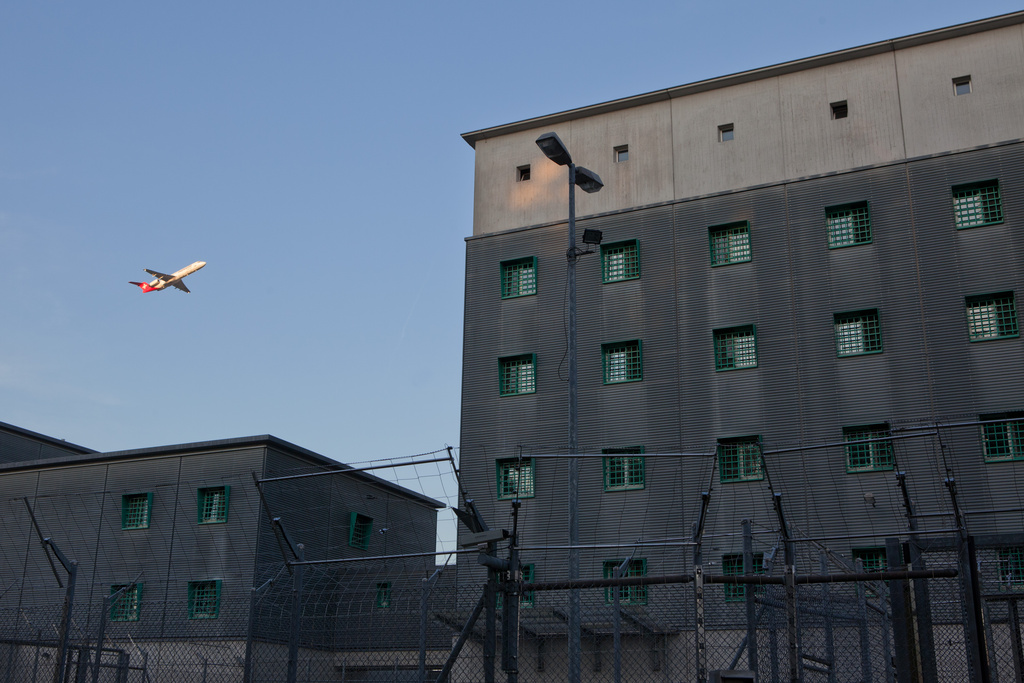
Right presses for tough line on foreign crime

The rightwing Swiss People's Party says it will insist on a tough stance against foreign criminals following voters' approval of an initiative on Sunday.
The government, which had supported a compromise counter-proposal, pledged to begin work immediately to implement the decision, despite a number of legal difficulties.
Experts have warned that the hardline initiative will clash with human rights and treaties with the European Union if parliament fails to draft specific legislation in line with international law.
The People’s Party wants the automatic deportation of foreigners convicted of crimes including murder and rape, and of those found guilty of defrauding the welfare system. The catalogue of crimes will have to be drawn up by parliament within the next five years.
Tough debates are expected in parliament as it works out the implementation of the constitutional amendment which won a majority of nearly 53 per cent of votes at the ballot box.
Adrian Amstutz, a senior People’s Party parliamentarian said the bar for deportations would be set low to ensure that the message gets across to “people coming to Switzerland to commit crimes”.
Equally uncompromising, his party colleague, Ulrich Schlüer, added there was no question about the mandate given by the electorate.
“The verdict is clear. The fight now begins to implement it,” he told public radio.
Injustice
But Thomas Fleiner, constitutional law expert and professor emeritus at Fribourg University, argues a ballot box decision must not create injustice as defined by international law.
Switzerland’s highest court has repeatedly ruled that international law is above national law, Fleiner adds.
He is convinced that parliament has a considerable range of options when drawing up the list of crimes stated in the initiative. “I think much remains open for parliament to specify.”
But he expects problems with the European Union because of a key labour accord with Switzerland in force since 2002, and the union’s single border policy.
“The bilateral treaties between Switzerland and the EU clearly rule out the deportation of citizens from one country to the other,” Fleiner told swissinfo.ch.
Working group
Justice Minister Simonetta Sommaruga says she is committed to help find a solution which respects constitutional rights and international regulations.
She said she would set up a working group before the end of the year, including members of the hardline initiative committee.
She added that she was counting on pledges by the rightwing to use “a sense of proportion” to ensure that minor offences will not automatically lead to expulsion.
Sommaruga, who is due to travel to Brussels for a regular meeting with her EU counterparts this week, believes the new policy will not necessarily lead to problems over a series of bilateral treaties.
“But it is important to explain the next steps in our legislative process,” she added.
She noted that the result of the vote showed that there is a great deal of fear and insecurity among the population. Sommaruga also stressed that the vast majority of foreign residents in Switzerland are law-abiding citizens who contribute to the prosperity of the country.
Political controversy
The war of words between the different political parties began right after the vote on Sunday.
The main groups tried to put pressure on each other to live up to promises made to crack down on crime.
The main centre-right parties and the centre-left blamed each other for failing to stop the success of the People’s Party.
The centre-left Social Democrats also pointed the finger at the Swiss Business Federation which had refused to fund the campaign saying the hardline initiative had no direct impact on business.
So far, no group has announced they will try to challenge the ballot box result with an appeal to the European Court of Human Rights.
Such steps were taken following voters’ approval of a controversial rightwing initiative to ban the construction of new minarets in Switzerland 12 months ago. The case is still pending in Strasbourg.
As part of Switzerland’s system of direct democracy votes take place up to four times a year.
So far 174 initiatives have been put to nationwide votes, but only 18 of them were approved by voters. The right was introduced in 1891 and the first initiative won a majority in 1893.
On Sunday citizens rejected a proposal by the centre-left Social Democratic Party to set minimum tax rates for the wealthy across the country, overruling the cantonal fiscal autonomy
Initiative:
Yes 52.9%
No 47.1%
Counter-proposal:
Yes 45.8%
No 54.2%
Turnout: 53%
As part of extended trials with e-voting a limited number of citizens from 12 cantons, including registered Swiss expatriates, took part in the ballot over the internet.
(With input from Andreas Keiser)

In compliance with the JTI standards
More: SWI swissinfo.ch certified by the Journalism Trust Initiative





























You can find an overview of ongoing debates with our journalists here . Please join us!
If you want to start a conversation about a topic raised in this article or want to report factual errors, email us at english@swissinfo.ch.